Graham Reid | | 7 min read
Ain't Gonna Go to Hell for Anybody (live, Toronto, 1980)
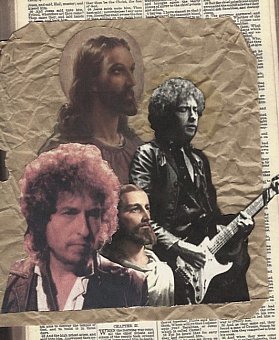
It is widely accepted that Bob Dylan's Eighties output – despite revisionist attempts to rehabilitate him during that largely dire decade – was a real career nadir.
It was surprising, given how well he had revived himself in the mid-Seventies with the multi-layered Blood on the Tracks in '75 then the slightly lesser but still valid returns on Desire ('75) and Street-Legal ('78).
What no one expected was his seemingly sudden conversation to Christianity and a trilogy of albums -- Slow Train Coming, Saved and Shot of Love -- which took him from '79 to '81.
It was odd to hear him singing songs with titles like Gotta Serve Somebody, Gonna Change My Way of Thinking and Man Gave Names to Animals (all on Slow Train).
Yet in retrospect there were some fine songs scattered across those three albums, all of which sounded considerably better than what confusion followed on albums like Infidels, Empire Burlesque and Knocked Out Loaded.
The on-going official Bootleg Series has shown that during the mid to late-Eighties he was actually putting aside superior material and those albums could have been much better if he'd been more engaged.
He was however very much more focused during that Christian trilogy and the new bootleg installment Trouble No More; The Bootleg Series Vol 13 (Columbia Legacy) confirms that persuasively through live cuts, previously unreleased songs and outtakes.
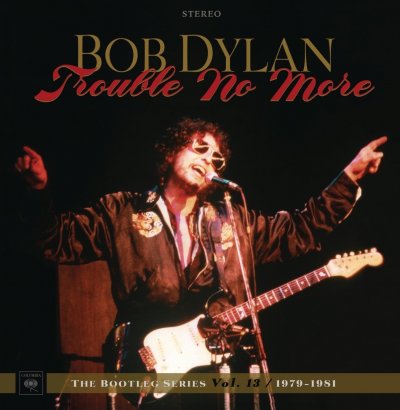 The release comes as a
30-song double CD, a thumping eight CD and DVD version, and a four LP
and double CD iteration.
The release comes as a
30-song double CD, a thumping eight CD and DVD version, and a four LP
and double CD iteration.
That eight CD and DVD version is a monster and packaged in the same manner as other deluxe sets in the series (for example Another Self Portrait, The Basement Tapes and Cutting Edge). And on every version of the sets, all of the songs are previously unreleased versions, and sometimes songs which never made it out of the studio or beyond a few showings on stage.
The DeLuxe Edition -- being considered here -- is a massive undertaking even for Dylanologists and completists: half a dozen versions of Slow Train, five of Gotta Serve Somebody and so on. And the previously unheard (or rarely heard) songs include Ain't Gonna Go to Hell for Anybody, Blessed is the Name, Stand By Faith, Rise Again and others, the titles alone showing just how serious he was about his commitment.
But in the live concerts (two in Toronto from '80 and two at Earl's Court the following year) he also realised that his proselytizing (and often lengthy lecturing) was losing him his audience . . . and so he began peppering in versions of his classics like Girl from the North Country, I Don't Believe You, Like a Rolling Stone, Ballad of Thin Man, Mr Tambourine Man and others.
In fact for one of the June '81 Earl's Court concerts of the 14 songs played only a few came from his then-current Christian albums.
For many this must have come as a relief, Bob was back and Jesus was being jettisoned.
It did seem to pass many people's attention at the time that Dylan – like Leonard Cohen, also Jewish – had long referred to the New Testament and Jesus in his lyrics . . . but of course for the trilogy it became a full-blown obsession and he was as dogmatic as any new convert.
So that is always going to make the songs from that period a little hard to take although mercifully his on-stage lectures and hectoring have been edited out of these live tracks.
Does this new installment of the bootleg series rehabilitate these songs?
That's a clear and unequivocal, yes. And no.
Given his evangelical mood and new-found faith, and his belief it really was the end of times with the four horsemen riding so it was time to get right with God, there's often an urgency and declamatory approach to these songs.
That slow train coming sounds more like a runaway engine fuelled by faith and fear in equal measure.
With his black backing singers he could have been like a Christian Bob Marley with his I-Threes, but too often Dylan adopted that higher moral ground and unforgiving nature of many neophyte converts in a way Marley rarely, if ever really, did.
As with George Harrison, Dylan often came off as accusatory and superior.
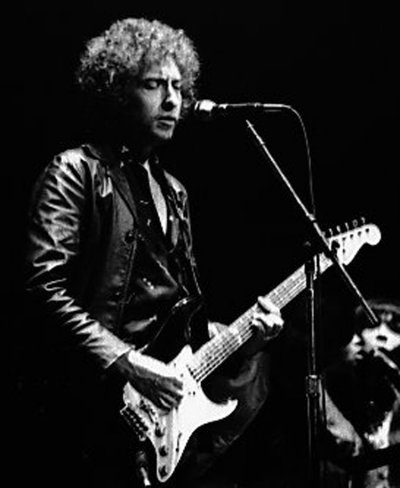 But . . .
But . . .
If there is any revelation here it is the superb musicianship (guitarist Fred Tackett, drummer Jim Keltner and keyboard wizard Spooner Oldham as Most Valued Players among the many), the sheer power of many of these songs (Serve Somebody is almost a secular song if you ignore the Christian context in which it was conceived) and the understated beauty of others (Precious Angel, a shining and again almost secular spiritual piece).
There is a furious gospel spirit and rockin' boogie invoked on the thrilling versions of Saved here, and at the other end of the spectrum is his quiet and achingly sincere version of When He Returns with just Oldham. As with some of his best songs (Positively Fourth Street, Subterranean Homesick Blues, Tangled Up in Blue by way of example) there is no chorus here just a series of linked images in barely discernible verses.
And all of those are just on the first disc, but they set expectations high . . . and even though songs are repeated, as has been his wont Dylan changes his approach and the arrangements each time . . . so when another Slow Train Coming kicks off the second disc it is a meaner and faster locomotive coming with relentlessness over a nailed-down groove and a guitar part by Steve Ripley which aims its hard rock solo into the cosmos like a warning. And are those women with their “whoo hoo” part at the end referring to the Stones' Sympathy for the Devil?
A later version is a slower soundcheck treatment with horns.
And Gotta Serve Somebody also undergoes other equally different deliveries, one of them an especially nasty r'n'b treatment full of piss'n'vinegar, another in the studio to an almost jaunty beat with Barry Beckett's solid piano part to the fore and producer Mark Knopfler's guitar chipping away.
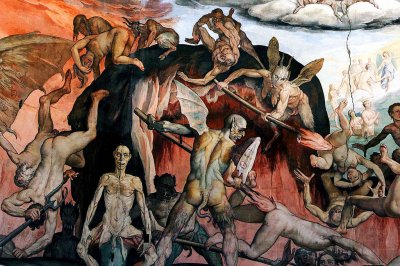 Also here among the largely unheard songs there is Ain't Gonna Go To Hell for Anybody which on
its first appearance on the second disc opens with the women quietly
then with more force repeating the title before Dylan enters with a
sneering and almost self-loathing: “I can manipulate people as well
as anybody . . . twist the truth as well as anybody”.
Also here among the largely unheard songs there is Ain't Gonna Go To Hell for Anybody which on
its first appearance on the second disc opens with the women quietly
then with more force repeating the title before Dylan enters with a
sneering and almost self-loathing: “I can manipulate people as well
as anybody . . . twist the truth as well as anybody”.
But then it turns into a slice of upbeat and thoughtful gospel-pop about saving himself.
There is an exciting Are You Ready? which rises out of a spare band introduction into a taut and exciting gospel groove.
Also here is a churning live version of his terrific Groom Still Waiting at the Altar (and a studio rehearsal with different lyrics), a live and unreleased version of Thief on the Cross, the unreleased City of Gold, Making A Liar Out of Me, Yonder Comes Sin (you can hear the Stones in the latter) . . .
Across these songs Dylan touches on blues, country, funk, gospel and soul as much as rock'n'roll and downtempo r'n'b.
He feels the possibility of imminent death (Saving Grace) and the need to state his faith (the singalong and previously unreleased Blessed is the Name).
What offended many at the time was how much Dylan the master lyricist was now prepared to simply quote Scripture . . . which does rather overlook what he was doing with it when he did.
He was rocking it up like some hellfire pastor mostly because he knew that Armageddon was coming. And sooner rather than later, my friends.
Dylan sounds completely committed everywhere here, articulating his rage and fears with clarity and sometimes raw passion.
Of course with this many songs – about 100 in the Deluxe Edition – not everything is going to be as persuasive as the best: Ye Shall Be Changed was never up to much, Jesus He's the One goes little further than that, quite a number get past the proselytizing by the sheer weight of the band and back-up singers . . . and of course you have to be fairly open to the idea of Dylan's evangelical fervour.
For those just curious about this, the double CD version might be adequate.
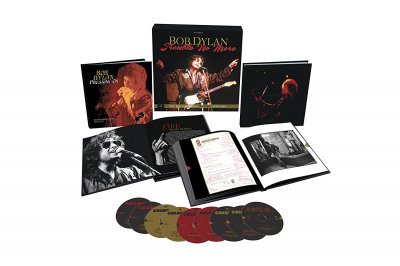 But the DeLuxe set -- with a hardback book of photos, an essay and plenty of information about the versions and locations of the recordings -- is a
massive and extraordinarily engaging undertaking. Perhaps more so for
his certainty which seemed to abandon him on most other albums of the
Eighties which followed.
But the DeLuxe set -- with a hardback book of photos, an essay and plenty of information about the versions and locations of the recordings -- is a
massive and extraordinarily engaging undertaking. Perhaps more so for
his certainty which seemed to abandon him on most other albums of the
Eighties which followed.
The DVD film by Jennifer LeBeau in the big box is an odd one: intercut between a rehearsal (Dylan in a good mood) and the thrilling live footage is actor Michael Shannon (excellent choice) playing a preacher in a pulpit declaiming to an empty church the wages of sin, of hypocrisy, of the demon drink, of taking the easy path . . .
The faux-doco doesn't shy away from the critical drubbing or the disappointment of some audience members either which gets mentioned at the start.
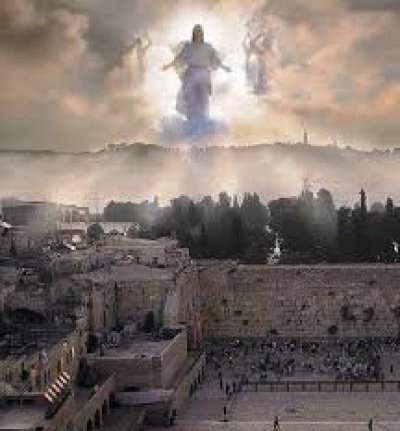 It closes with a piano version of Abraham,
Martin and John. Some former fans who remain skeptical might wonder at the line, "Have you seen my old friend Bobby, can you tell me where he's gone?"
It closes with a piano version of Abraham,
Martin and John. Some former fans who remain skeptical might wonder at the line, "Have you seen my old friend Bobby, can you tell me where he's gone?"
Well, this Bobby wasn't gone at this time, just changed.
Given what a critical pasting Dylan took – not a response he was unfamiliar with, of course – you do have to admire that he was so sincere he just kept writing these songs of belief which sometimes lambasted his audience.
He was utterly committed and that comes through with certainty here.
You may not like the message but the honest faith of the messenger was not to be doubted.
In the on-going Dylan bootleg series it seems surprising to say this, but this monster will be getting a lot more revisits than the rambling Basement Tapes.
There is a clarity of focus here – albeit narrow, of course – and some superb musicianship. Among those on the studio outtakes and rehearsals are Danny Kortchmar, Benmont Tench, “Duck Dunn”, Ringo, Ben Keith, Steve Douglas, Willie Smith . . .
But what shines through is the undeniable power and presence of Dylan on stage and in these songs which come up harder and more definable, often sounding much more cutting or sincere than the studio versions.
This music is rarely pedestrian.
And mostly Bob Dylan rocked out with a driving spirit which impelled him . . . like he was playing the Devil's music.
There is a considerable amount about all periods in Bob Dylan's long career at Elsewhere starting here.

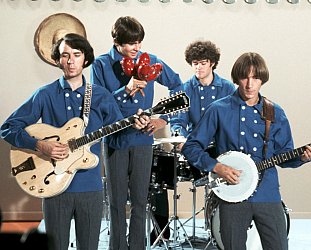
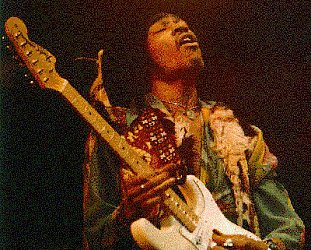
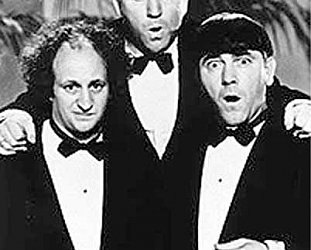
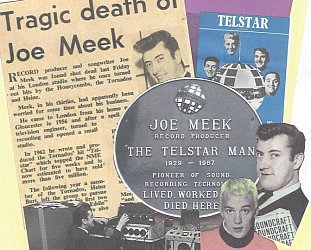
post a comment